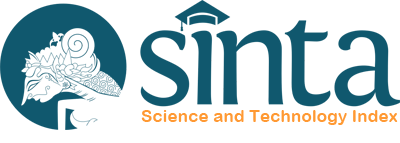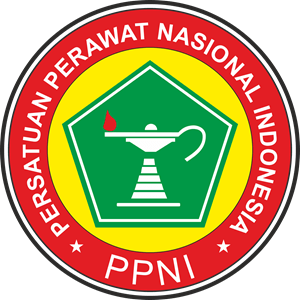KNOWLEDGE OF A FAMILY AFTER EDUCATION IN HOSPITAL PRE HOSPITAL STROKE EDUCATION HANDLING AT PANCARAN HOSPITAL OF MANADO
Abstract
Background: The lifestyle of Indonesian people that shifts towards an instant and fast food lifestyle affects the health of everyone, coupled with factors such as lack of physical activity, fast food consumption and the impact of stress, which can trigger factors stroke that can lead to death. Aims: This study is to determine the effect of health education on the handling of pre-hospital stroke emergencies on family knowledge. Method: This research is a pre-experimental design using a one-group pre-test-post-test design. The population in this study amounted to 120 family members and 30 samples were determined using the purposive sampling method. Respondents were given treatment in the form of health education about the handling of pre-hospital stroke emergencies. The measured variable is family knowledge before and after treatment and measured using a questionnaire that has been tested for the validity and reliability of the instrument, by processing data using editing, coding, processing, and cleaning techniques. Data analysis is presented in tabular form and tested with the Wilcoxon Signed Rank Test. Results: The Wilcoxon Signed Rank Test statistical test showed family knowledge before and after treatment with pValue = 0,000 (α = 0.05). Conclusion: health education has a significant effect on family knowledge about the handling of pre-hospital stroke emergencies. Suggestions from this research, health workers can provide health promotion in the form of providing health education or ongoing training in order to add insight to families about emergency care.
References
Hidayat. A. (2007). Etika Penelitian. www//etikapenelitian.com. diakses tanggal 9 Desember 2017
Indrawati. (2010).Tingkat Pengetahuan Keluarga dan Kesiapan Keluarga dalam Merawat Anggota Keluarga yang Menderita Stroke di Desa Kebakkramat Karanganyar.
Notoadmojo, S. (2012). Metode Penelitian Kesehatan. Jakarta: Rineka Cipta
Potter & Perry. (2006). Penanganan Stroke Prehospital.
Riskesdas, (2013). Riset Kesehatan Dasar Tahun 2013.
Sugiyono. (2013). Metodelogi Penelitian Kuantitatif, Kualitatif dan R&B. Bandung: Alfabeta.
Wahyuningsih. (2013). Pengaruh Pendidikan Kesehatan tentang Stroke terhadap Perilaku Mencegah Stroke pada Penderita Hipertensi di Kelurahan Bayat Klaten Jawa Tengah. .
Wijaya, M. (2014). Pengembangan Model Pelatihan Partisipatif Berbasis Gender Dalam Meningkatkan Kompetensi Kader Tentang Kesehatan Ibu dan Anak. Universitas Pendidikan Indonesia






1.png)
.svg_.png)
.png)



